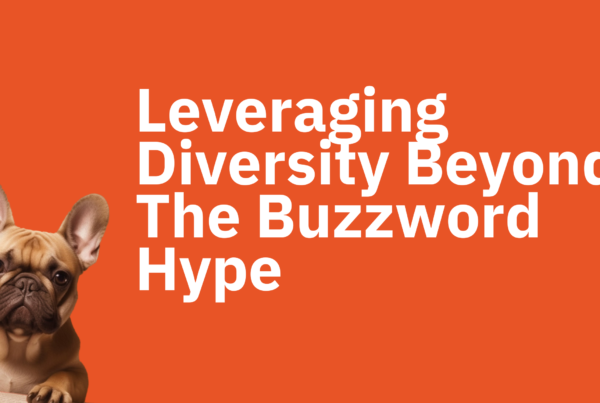Social Listening – 7 Reasons to consider it and the tools to use to do it right
What is Social Listening?

By definition, Social Listening is the process of tracking, monitoring, and analyzing big data from social media and the web; these are things like customer feedback, direct mentions, keywords, hashtags, and conversations about your brand, your competitors and your industry as a whole.
In other words, social listening reveals a few things:
- The negative and positive feelings your customers have regarding your brand, your competitors, and your industry, and why they have them.
- The best ways to reach your target audience. (Where are all of these conversations about your brand happening? That’s where your customers are!)
- Your share of the industry buzz. (How much more or less are people discussing your brand in comparison to competitors in your industry?)
Analyzing this data will provide you with valuable insights into the type of content and products your ideal customers want to see and how to keep up with industry trends.
Social Listening vs. Social Monitoring- both critical tasks, but aren’t they the same thing? Actually, no.
Social media monitoring involves collecting data like brand and competitor mentions, industry trends, and relevant hashtags.
Social listening comes into play when this data is analyzed and used to draw big picture objectives about how to enhance your business model.
What Are the Benefits of Social Listening?
Analyze & Track Competitors
Keeping an eye on what your competitors are accomplishing can really give you a leg up in your industry. (See what I did there? Keeping an eye will give you a leg up 😂)

Anyway, social listening allows you to track what your competitors are doing, and the discussions around them, in real-time.
By learning how their customers feel about their services and products, and how the press covers your competition in the news, you can adapt your business practices accordingly to stay ahead in the game.
Competitor analysis also sheds light on your share of voice; a metric which displays how much social media users are discussing your brand in comparison to competitors within your industry. If you’re questioning your customer’s brand awareness, analyzing your share of voice is a great way to find out.
Optimize Customer Experience
Not only does social listening allow you to learn what your competitors are up to, but it also allows you to track what is relevant to your audience and your rate of engagement; a metric measuring the number of replies, mentions, retweets, likes, favorites, and shares you receive on social media.
Now pay attention, this one is a biggie. And no, I’m not referring to Christopher Wallace. (LOL!) All jokes aside however, engaging with your customers is critical to your brand loyalty and awareness.
In fact, based on a study conducted by Sprout Social, 83% of participants actually like it when brands respond to their inquiries. Most of customer service has gone digital and, with about 68% of customers leaving businesses for subpar or nonexistent customer service, it’s imperative to meet them where they’re at.
It’s also important to note that nearly 50% of all customers will purchase from a brand that is more responsive on social media.
It seems as though using social listening to optimize your customer experience can also help increase your bottom line in the long run… noice.
PR & Reputation Management

In a perfect world, all your customer engagement would be positive and there would never be any scandals to cover up or crises to fix.
The truth is though, this is far from a perfect world, and customers will complain or leave negative comments at some point. If you’re utilizing social listening tools however, this is something that becomes a lot easier to manage.
Social listening allows you to keep track of your customer’s “online mood” towards your brand, this is known as the social media sentiment.
Monitoring this gives you the upper hand when it comes to managing your brand’s PR and addressing issues while they’re molehills, before they become mountains.
SEO Marketing
Now that you have an idea of what your target audience finds relevant and appealing, you can use this information to optimize your website and content to be more visible to new ideal customers.
A critical step in optimizing your search engine traffic is keyword research.
Social listening plays a significant role in this step by giving you a glimpse at what topics your target audience discusses the most, which can help in the content creation process.

Influencer Marketing
Take your social listening analysis a step further and identify any key social media influencers that your audience may follow. Especially if they already advocate for your brand!
Indeed, keeping track of online users who mention your brand the most is a great way to find new influencers to partner with.
Don’t forget to pay attention to influencers advocating for your competitors!
Not only can you learn from them (what to do and what not to do) but they could also be influencers for your brand in the future.
Track Industry Trends
Although it is important to make sure you are customer-focused, you don’t want to be so focused on them that you forget to remain relevant within your niche.
Also, utilize social listening to keep track of what’s going on within your industry to stay in the know.
Monitoring the trends within your niche is just as important as the trends within your customer base.
After all, you want to have an edge on your competitors so your customers keep coming back, right?
Track Campaign Performance
If you launch any kind of digital campaign, social listening can help identify its successes or failures and the reasons behind them to help you better suit them to your target audience.
As we learned earlier, social monitoring tells us the what, but social listening tells us the why.

For example, let’s say you have a Facebook campaign going and your landing page isn’t getting as many subscribers as you projected. You could be thinking it has to do with the design features and decide on a complete redesign.
However, after conducting social listening research you find the issue has nothing to do with your design, it’s that you’re asking too many questions on your sign up sheet. This fix is a lot less time consuming (and probably WAY less expensive) than a complete redesign.
5 Social Listening Tools to Get Started
Sprout Social
Sprout Social is a platform that creates innovative social media monitoring and analytics software.
Not only do they offer coveted social listening tools, but they also provide tools for publishing your content as well as monitoring your customer engagement and social media analytics.

Hootsuite
Hootsuite is well known for their social media management tools. Take advantage of things like scheduling and analytics all the way to education and content curation.
Besides, it comes with plans servicing all types of users (professionals, small businesses, teams, and enterprise), even the free version of Hootsuite gives us a great starting point.

Brandwatch
Brandwatch, like the aforementioned resources, offers tools for social listening, competitor analysis, and content curation. However, you can also utilize their influencer marketing tools to partner with social media influencers within your niche!

Reddit Keyword Monitor
The Reddit Keyword Monitor by Hootsuite tracks keywords and phrases that you set, within social media posts and comments, to monitor conversations about your brand, your competition, and your industry, respectively.

Awario
Awario takes social listening a step further by analyzing over 13 million web pages (including social media, news sources, blogs, forums, and more) to actively monitor the conversation around your brand.

Hey, are you struggling with your social media listening strategy?
Or, maybe you don’t even know where to get started with your social media marketing as a whole. Nonetheless, Contact us at Phu Concepts to set up a virtual consultation today, we love to strategize!






